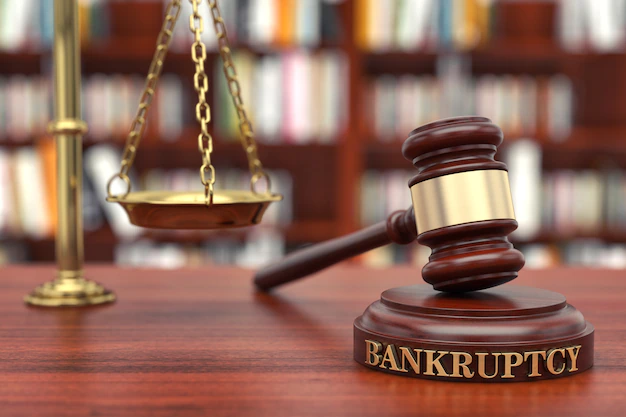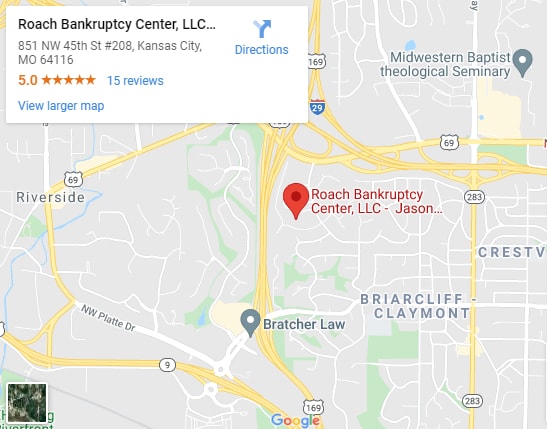Chapter 7 Bankruptcy Eligibility in Kansas
Introduction

For individuals who have too much debt to pay off, Chapter 7 bankruptcy can be an option. Filing Chapter 7 bankruptcy provides debt relief through discharge. Most individuals who have Chapter 7 bankruptcy eligibility must fulfill eligibility requirements.
You have the legal right to a fresh financial start under Chapter 7 bankruptcy. Sound legal advice from a competent bankruptcy attorney is within your reach. Regardless of where you live in Kansas, Roach Bankruptcy Center, LLC will prepare and file your Chapter 7 bankruptcy on your behalf.
The Means Test
The process of asset liquidation is governed by Chapter 7 of Title 11 of the United States bankruptcy code. A bankruptcy trustee is assigned to liquidate nonexempt property in order to pay creditors. Once the proceeds have been depleted, the remaining debt is dismissed. To file Chapter 7, the debtor must meet certain eligibility conditions, including not having been discharged from a Chapter 7 bankruptcy in the past eight years and passing a means test. Additionally, this procedure is referred to as “straight” or “liquidation” bankruptcy.
In Chapter 7, it is specified under the absolute priority rule in which sequence debts are to be paid off. Under this regulation, unsecured debt is divided into groups or categories, with each group or category obtaining payment priority over the others. Secured debt, such as a mortgage, is debt that is backed or secured by collateral in order to lessen the risk involved with lending.
Priority debts that are not secured are paid first. Tax payments, child support, and personal injury claims against the debtor are all examples of unsecured priority debts that must be paid first. Debts that are secured are paid first. The final step is to pay off non-priority, unsecured debt with the monies left over from the sale of assets remaining. It is paid on a pro-rata basis to debts that are not prioritized if there is insufficient money to pay them all in one lump sum payment.
The Means Test
If you want to file for Chapter 7 bankruptcy in Kansas, you must first pass the state’s means test. The test only relates to higher income registrants, which means that if your income is less than the Kansas median for your household size, you are excluded from the test and are eligible to file a Chapter 7.
If your income is greater than the Kansas median, you will be required to complete a means test calculation in order to evaluate whether you will be able to pay back a part of your unsecured obligations through a Chapter 13 bankruptcy proceeding.
Facing Imminent Foreclosure?
We can help save your home! Even if time is running out, we’ll find a way. Find out how by speaking with our bankruptcy lawyer in Kansas City, Missouri today.
Call Us Today! (816) 454-5555
Kansas Median Household Income
If your current monthly household income is less than the Kansas median household income for your size, you are presumed to pass the means test and be able to apply for Chapter 7 bankruptcy.
Your household’s average income is calculated by averaging your monthly earnings over the previous six calendar months. If your income exceeds the median income limit and has decreased over the last six months, waiting one or more months may bring your income below the Kansas median level. Once your average monthly income is determined, multiply it by 12 to obtain your yearly income for the Kansas median income test.
- One MemberHousehold of One – $43,793.00
- Two Member Household – $57,502.00
- Three Member Household – $65,394.00
- Four Member Household – $72,453.00
- Five Member Household of Five – $80,553.00
- Six Member Household – $88,653.00
- Seven Member Household – $96,753.00
- Eight Member Household – $104,853.00
- Nine Member Household – $112,953.00
- Ten Member Household – $121,053.00
Means Test Exemptions
If the majority of your debts are not consumer debts, you are free from the means test. Additionally, if you are a handicapped veteran who incurred the majority of your debt while on active duty or undertaking a homeland defense operation, you are excluded from the means test.

Dischargeable Debts
Many liabilities, such as credit card balances, past-due utility payments, medical bills, personal loans, and other debts, are eliminated when you file for bankruptcy. In some cases, you may be able to get rid of your mortgage or auto payment provided you are ready to give up the home or car that serves as collateral for the debt. Placing property as collateral produces a “secured debt,” which means that if you don’t pay what you owe, the lender has the right to seize and sell the property.
However, you will not be able to discharge all of your debts. Nondischargeable debts, such as child support arrearages and current tax arrears, will not be discharged in bankruptcy, and student loans are not easily discharged. Make certain that filing for bankruptcy would discharge (get rid of) enough debts to make it worthwhile for you to go through with the process.
Facing Imminent Foreclosure?
We can help save your home! Even if time is running out, we’ll find a way. Find out how by speaking with our bankruptcy lawyer in Kansas City, Missouri today.
Call Us Today! (816) 454-5555
After Bankruptcy Filing
Your creditors will stop harassing you as soon as you file for bankruptcy. It takes a few days because the court mails notice of the “automatic stay” order to your creditors, which precludes most creditors from continuing to demand payment from you. What will happen next is as follows:
- You will be required to provide financial documentation to support the claims made in your bankruptcy application.
- You will appear before the 341 meeting of creditors, which is the only appearance that all filers are required to make.
- You will finish a debtor education course and submit a certificate of completion to the court.
All of these events must take place before you may receive a Chapter 7 bankruptcy discharge. A repayment plan confirmation hearing will also be held for Chapter 13 filers, who will be required to complete a payment plan that will last between three and five years.
Credit Score
Chapter 7 Bankruptcy is supposed to eliminate debt. It is not intended to be used for credit repair purposes. The effect of Chapter 7 Bankruptcy on a credit score varies by individual.
Although, in many cases, your credit score will rebound once you have paid off the bills that contributed to your poor credit score. Chapter 7 bankruptcy is reported to credit bureaus for up to ten years. You may still be eligible for house loans, auto loans, and credit cards throughout this time period. There are several strategies to rebuild your credit following the conclusion of Chapter 7. If one of your objectives is to obtain a new home or automobile, contact our Kansas City Chapter 7 bankruptcy attorney or book a free consultation now!
Please contact us at 816-408-6708!
